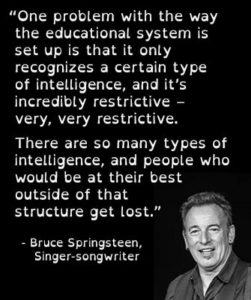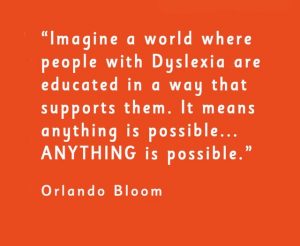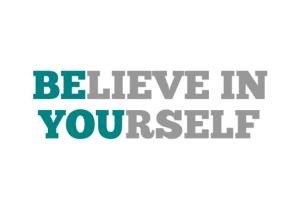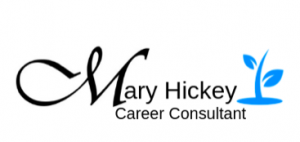
Resilience “refers to a class of phenomenon characterized by good outcomes in spite of serious threats to adaptation or development” (Masten, 2001).
This is something I see regularly in my work with young people and very evident with those young people who are impacted by the extra challenges of: ADHD, Autism, Asperger’s, Dyspraxia, Dyscalculia and Dyslexia to mention just a few. The challenges that this cohort face not only in their education but also in their overall wellbeing should not be underestimated. 
However, what has become very clear for me working with these young people is they don’t want sympathy or discern extra attention they just want to be able to avail of the same level of education and life path as their peers. “I don’t think I’ve got a disability. I like being me”; (Goodenough2009). Consequently they are in general, willing to put in whatever it takes to allow them to achieve their unique goals.
What I witness from working with these young people and their parents is that as a society we put a lot of barriers in their way to achieve this. Despite the best efforts of teachers, resource teachers school liaison officers and SNAs our education system definitely is a barrier that needs updating and readdress. A young person with ADHD may not be able to sit still in a classroom environment for 45- 60 minutes without engaging in some form of behaviour or outburst not applicable to said environment. Sitting for a 3 hour exam which is the norm in Ireland is a huge stressor for this young person and can contribute to poor grades that in no way reflect the intellect of the young person. To address these behaviours some young people despite all best efforts have had to resort to medication. One particular student spoke to me about the side effects of this medication including; insomnia, digestion problems, memory lapses and embarrassment of taking medication. This young student is showing huge resilience and adaption to break down the societal barriers imposed upon him and pursue his educational dream to qualify in an area most suited to his unique strengths and intellect. It is difficult to quantify the number of students with ADHD in Ireland however indicators put the figure at approximately 60,000. So that is approximately 60,000 young people living with similar educational/life challenges to this young gentleman!
Estimates show that 1 in 10 people in Ireland have some form of dyslexia. A person with dyslexia sees a muddle of letters on a page, undistinguishable words that jump out of the page at them. They have lots of information and knowledge stored in their brain but due to the challenges of their condition can’t transfer it onto paper. These means that the young person with dyslexia is unable to engage in the normal route learning that is associated with our education system. They are unable to fully engage in the normal exam process. Consequently impacting their potential to gain the points necessary to continue their studies in an area they wish to pursue and no doubt given the chance they would excel in.

The young person challenged by autism experiences sounds and smells and the world differently from a non autistic person but whose perception is correct (Robison, 2018)? This is something we should all reflect upon and integrate into our thought process
and indeed our education system so as to allow these brilliant people to reach the extraordinary potential that they have. Research is constantly recommending that educators in both mainstream and special education sectors should be allowed to use interventions appropriate to the unique needs of the student with autism so as to allow them to reach their educational potential. Despite efforts at the micro level by individual schools and teachers; parents are relaying to me that this is definitely not being rolled out at the macro level. While there are programmes in place to assist these young people in their education journey including Resource Hours, Scribes, Readers DARE, AHEAD, and Disability Officer in third level education (please rename as Ability Officers) from what I hear from parents and teachers these programmes are only reaching a small number of students. Parents and teachers are fighting constantly to avail of these services for the young person and find them lacking due to the hours available or places available in colleges via the DARE scheme.
While already formally diagnosed in certain cases students will find themselves having to be reassessed to be even considered for such interventions. Some students and parents have spoken about the embarrassment of this and how it can impact their self-esteem among their peers. Parents have commented positively on the information and help available via the AHEAD programme. I have seen through my work in Whitney Career Guidance the positive impact of 1-1 sessions with these clients. It allows them to explore their individual needs and allows them to see the strengths and abilities they have and how these can be utilised to pursue their career goals. It also gives them the platform to research and investigate routes of education that they will excel in without the baggage of studying subjects not suited to their learning style and intellect. I don’t use this word lightly but in certain cases I have seen an ‘awakening or a sense of purpose’ that the young person experiences when they realise the extent of careers, courses and routes available and suited to them.
 We are all aware of some famous people or “celebrities” who face challenges of ADHD, Autism, Asperger’s, Dyspraxia, Dyscalculia and Dyslexia for example; Darwin, Daryl Hannah, Anthony Hopkins, Michael Phelps, and Will I Am. I have been privileged to work with some fantastic students who experience these challenges. I think they deserve a shout out here, so to the young girl with dyslexia and Asperger’s who worked so hard in her Leaving Certificate to gain her place without the help of DARE in UCD to study her passion of Ag Science, to the young man with ADHD and Dyscalculia who is fluent in two foreign languages working hard in translations studies in DCU, the maths genius with autism who is studying Computer Science in WIT and the young lady with ADD now in her second year of an insurance apprenticeship with one of Ireland’s top Insurance Companies. We take our
We are all aware of some famous people or “celebrities” who face challenges of ADHD, Autism, Asperger’s, Dyspraxia, Dyscalculia and Dyslexia for example; Darwin, Daryl Hannah, Anthony Hopkins, Michael Phelps, and Will I Am. I have been privileged to work with some fantastic students who experience these challenges. I think they deserve a shout out here, so to the young girl with dyslexia and Asperger’s who worked so hard in her Leaving Certificate to gain her place without the help of DARE in UCD to study her passion of Ag Science, to the young man with ADHD and Dyscalculia who is fluent in two foreign languages working hard in translations studies in DCU, the maths genius with autism who is studying Computer Science in WIT and the young lady with ADD now in her second year of an insurance apprenticeship with one of Ireland’s top Insurance Companies. We take our
hats off to you today and acknowledge the strength of character and resilience that you role model for us every day of your lives.
We all have challenges in our life, we all have needs in our life some more so than others, some with more impact on our life journey than others but what we all have in abundance is resilience; unusually good adaption in the face of severe stress (Beardslee, 1999). We can hope that as a society we continue to knock down the barriers that may interfere with the
life journey of those with the challenges mentioned in this script but in the meantime be confident in your ability and be true to yourself. You are all a true definition of resilience. This script is based on some of the experiences I have encountered in my work as a Career Consultant. It is in no way a complete portrayal of the lives of those who are facing these challenges on a daily basis because no one can truly portray this other than the person experiencing it.
Mary Hickey, Career Consultant.

References:
Alex Goodenough (2009) ‘The curious incident of the straight-A student’.
Beardslee, W.R., ‘ The Role of understanding in resilient individuals: The development of
perspective’, American Journal of Orthopsychiatry, 59 (1989), 266-278
Masten, A.S.,’Ordinary Magic : Resilience Processes in development’, American Psychologist,
56 (2001), 227-238.
Robison, J.E., ‘What is Autism?’ Psychology Today, 9, (2018) 48-50.
